James Comey: FBI chief at loggerheads with Clinton camp
- Published
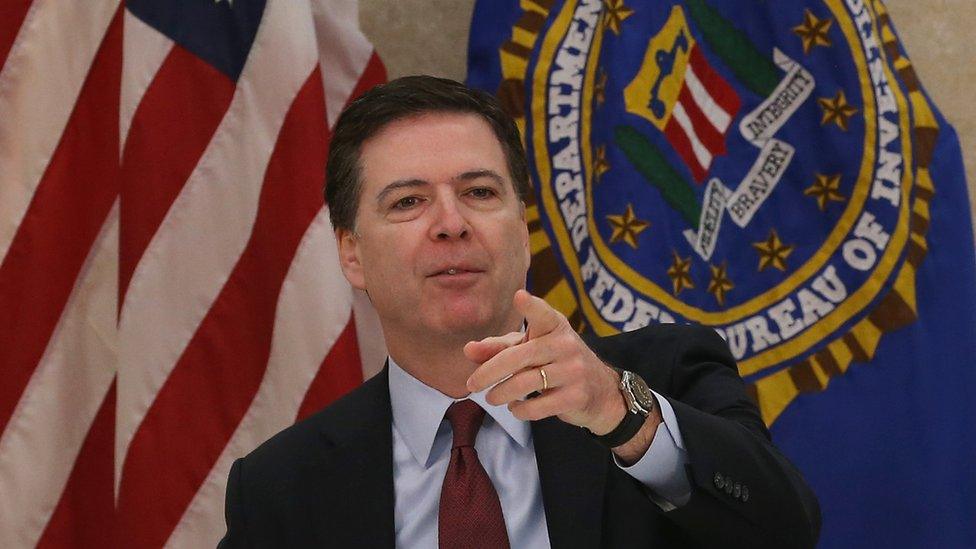
FBI Director James Comey has said that the justice department has to be seen as nonpartisan
FBI Director James Comey has placed himself at the centre of the US presidential election campaign after ignoring advice from the US justice department and revealing a new investigation into Hillary Clinton's email use.
The move, described by Mrs Clinton as "unprecedented" and "deeply troubling", was said by officials to be inconsistent with rules designed to avoid the appearance of interference in an election.
Back in July Mr Comey took the decision not to charge the Democratic presidential candidate over her use of private email at a time when she was secretary of state in the Obama administration.
The announcement created a storm of Republican protest and he was forced to justify his decision amid calls to testify to a House committee.
Mr Comey also said in July that although he had been a registered Republican "for most of my adult life", he was no longer a member of the party.
So who is Mr Comey and what does he stand for?
'He stands tall'
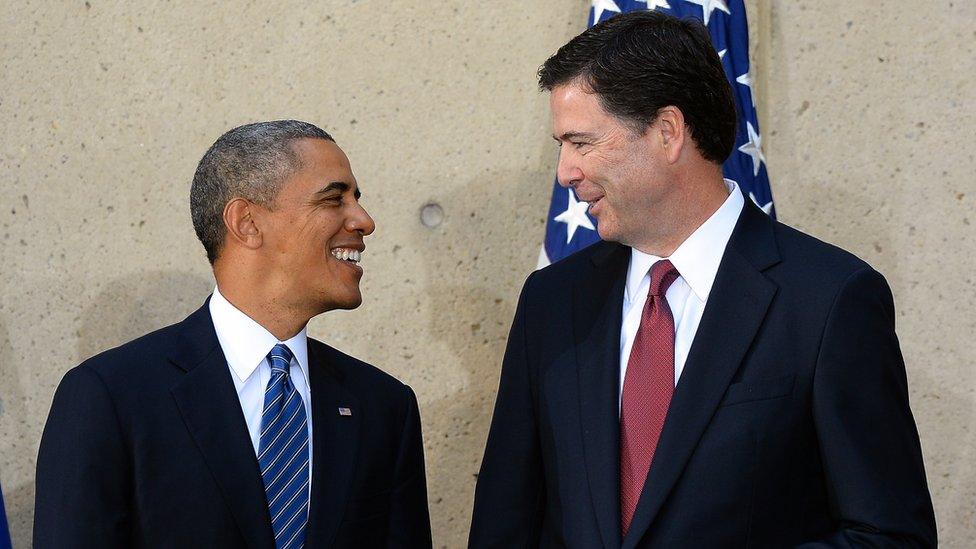
Barack Obama praised Mr Comey's "deep integrity" when he was appointed FBI Director in 2013
Mr Comey, who is 6ft 8in (2.08m) tall, was praised by President Barack Obama when he was appointed FBI Director in 2013 as a model of "fierce independence and deep integrity".
The president commended Mr Comey's work as a young prosecutor in the US attorney's office in Manhattan, when he helped bring down the Gambino mafia crime family.
But one of the most dramatic episodes came during Mr Comey's tenure as deputy attorney general in the Bush administration in 2004, when then-Attorney General John Ashcroft was ill in hospital.
Mr Bush's White House counsel Alberto Gonzales and Chief of Staff Andrew Card pressed Mr Ashcroft in his hospital bed to re-authorise a controversial programme allowing federal agents to eavesdrop on phone conversations without a warrant.
Mr Comey, who was acting as attorney general in Mr Ashcroft's stead, rushed to the hospital to intervene.
Changes were subsequently made to the programme for which Mr Comey drew wide praise.
Mr Obama said the incident indicated that Mr Comey "was prepared to give up a job he loved rather than be part of something he felt was fundamentally wrong".
Comey and the Clintons
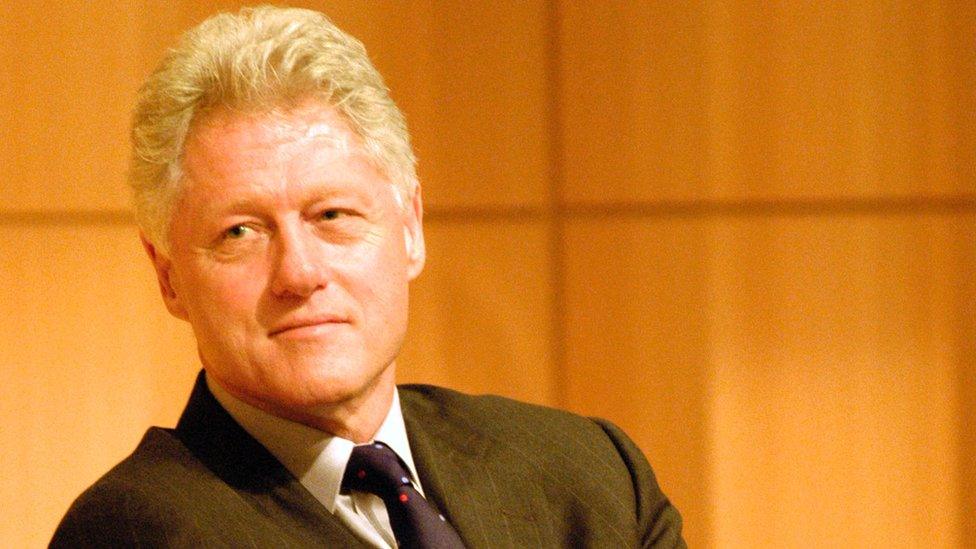
Bill Clinton admitted that his decision to pardon Marc Rich was "terrible politics"
The investigation into Mrs Clinton's email use is not the first time that Mr Comey has been at loggerheads with one of the Clintons.
In 2002, one of his first tasks as a US attorney and federal prosecutor was to investigate the controversial pardon of US businessman Marc Rich by then-President Bill Clinton.
Mr Rich, a commodities trader who later fled the country, was alleged to have evaded more than $48m in income taxes and to have illegally bought oil from Iran during the 1979 hostage crisis.
Among those said to have strongly opposed Mr Clinton's decision was John Podesta, external, who was later appointed senior advisor to Mrs Clinton's 2016 presidential campaign.
The inquiry, led by Mr Comey, focused on accusations of links between the Democratic Party and Mr Rich.
Mr Comey later dropped the case but the investigation resulted in Mr Clinton admitting that his decision to pardon Mr Rich was "terrible politics".
"It wasn't worth the damage to my reputation," the former president said.
The case of Martha Stewart
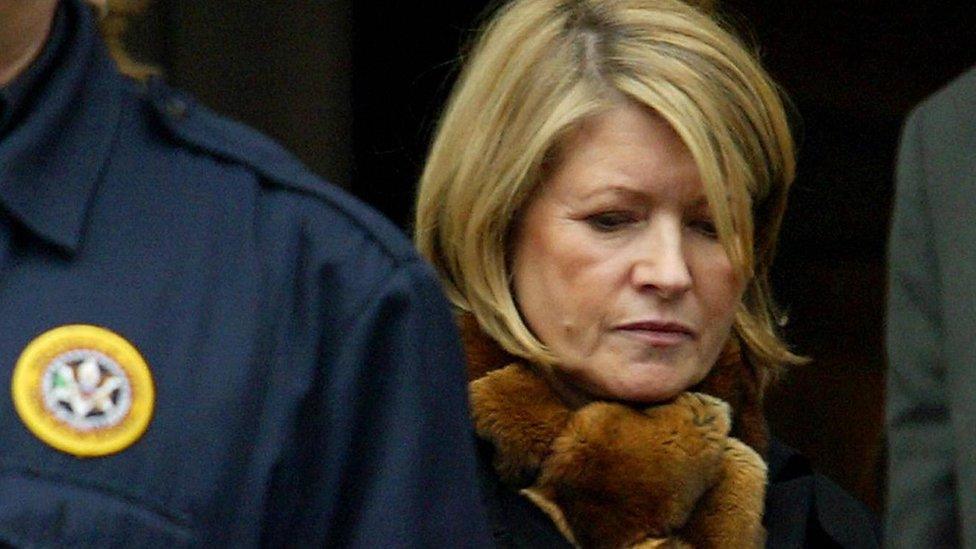
Martha Stewart was found guilty in 2004 of making false statements to federal investigators
The following year Mr Comey led the prosecution of Martha Stewart, one of America's most celebrated lifestyle gurus.
Stewart was investigated for insider trading after she sold shares in biotech firm ImClone a day before regulators refused to review the company's cancer drug.
"Martha Stewart is being prosecuted not for who she is, but because of what she did," Mr Comey told a press conference at the time.
"This criminal case is about lying; lying to the FBI, lying to the SEC, lying to investors," he added.
Stewart was sentenced in 2004, external to five months in jail and five months of house arrest over charges of conspiracy and obstruction.
'My people stand up before juries of all stripes'
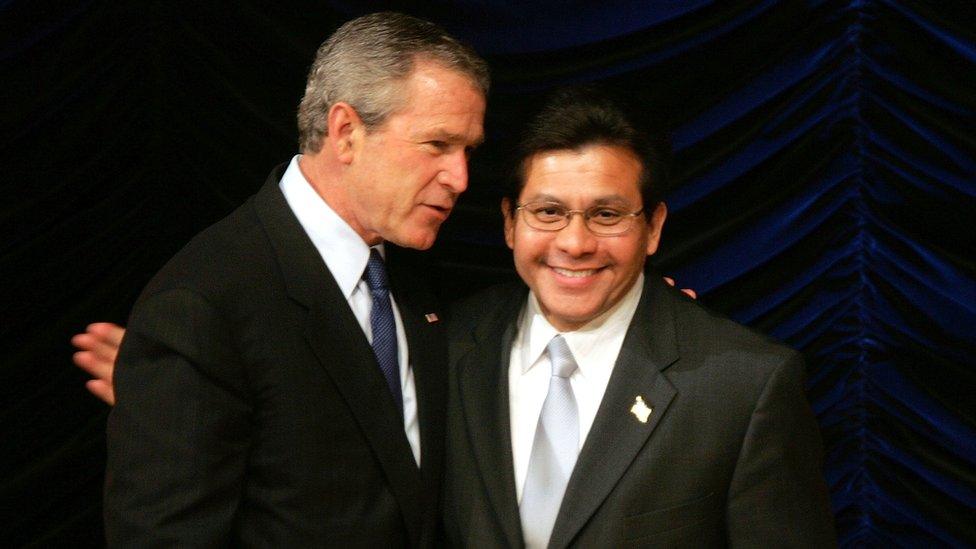
George W Bush and then-Attorney General Alberto Gonzales in 2005
In 2006, the removal of eight US attorneys, external at the justice department triggered an investigation into whether the move was politically motivated.
Democrats attempted to force the resignation of then-Attorney General Alberto Gonzales, accusing him of firing the prosecutors for political reasons and then lying about the reason for their dismissal.
But Mr Bush dismissed the attempts to remove Mr Gonzales as themselves political.
Mr Comey stated his disapproval of Mr Gonzales in testimony to a Congressional committee.
He said that the department had to be perceived as nonpartisan and non-political in order to function effectively.
"The US attorneys are political appointees of the president," he said, adding that once those positions were taken, it was important that the institution be seen as representing the interests of the American public.
"My people had to stand up before juries of all stripes, talk to sheriffs of all stripes, judges of all stripes. They had to be seen as the good guys, and not as either this administration or that administration," he said.

Predict the president

- Published30 October 2016
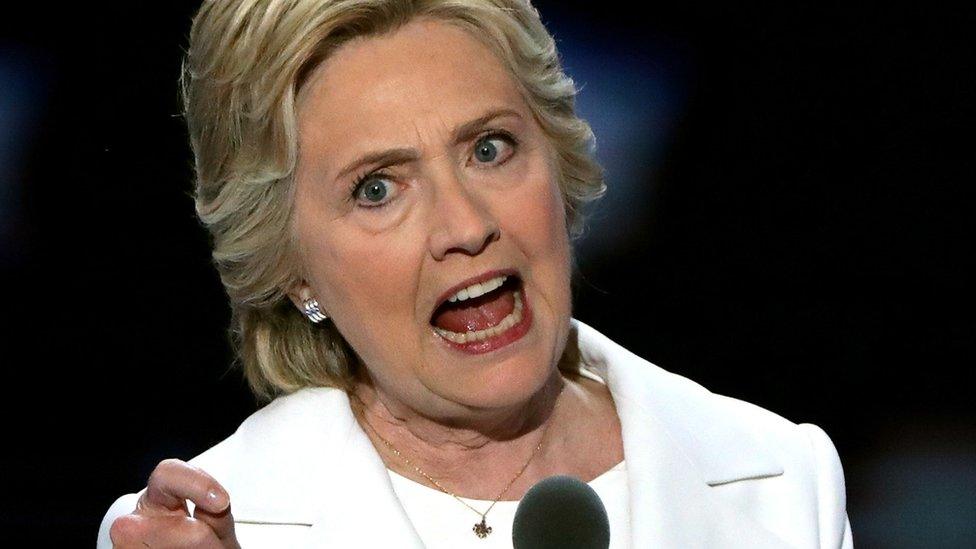
- Published10 May 2017
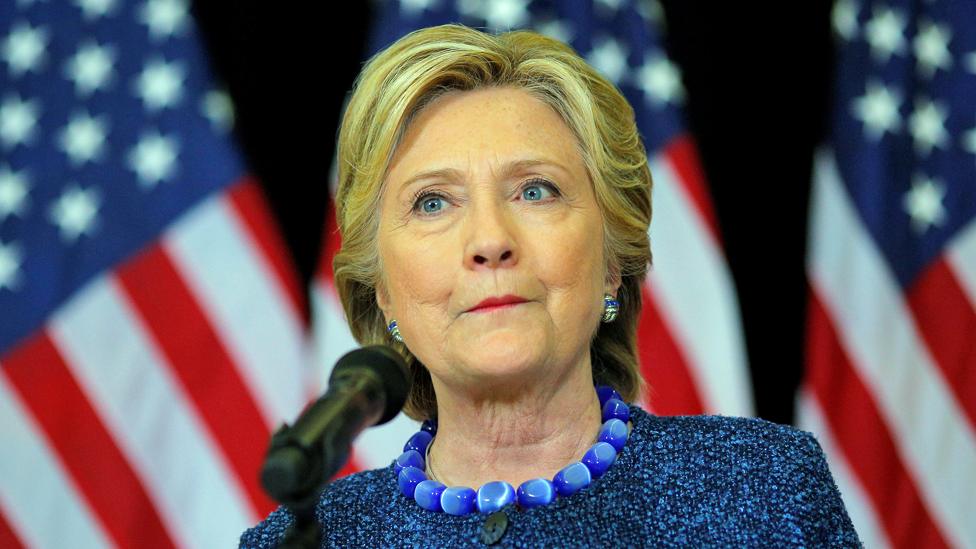
- Published28 October 2016